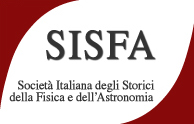Speaker
Description
"Culture is humanity's only asset that, when divided among all, instead of diminishing becomes greater." When Gadamer spoke these words, the reality of the web had not yet established itself. Today, alongside traditional means of communication, we find a series of allies that allow for the widespread dissemination of culture. This is the case of the new visiting project at the museum La Specola of Padua, which aims to make the enjoyment of its heritage more accessible and engaging.
Of the over 8,000 visitors who annually visit the museum, a considerable fraction, about 20%, is of foreign origin, which highlights a significant limitation in traditional monolingual visits. Starting from this premise, a project has been developed that, combining tradition and innovation, allows all visitors to explore the Paduan Observatory through a multilingual system designed for both groups and individual visitors. Thanks to a web app, the guided tour will be available not only in Italian, but also in English, French, German, Spanish, Slovenian, and Chinese. This will guarantee a more inclusive cultural experience both for an international audience and for users with mobility difficulties. In fact, the same contents will also be integrated within a virtual tour, making the Specola increasingly accessible.
The web app will also be integrated with a series of immersive elements in virtual and holographic reality that will allow for deeper exploration of some contents related to the evolution of astronomical knowledge. The project proposes a model that combines inclusivity and heritage valorization, highlighting the potential of technologies in disseminating the history of science.

